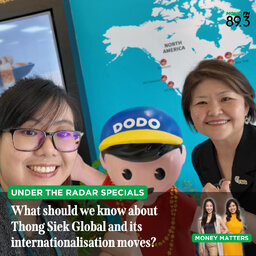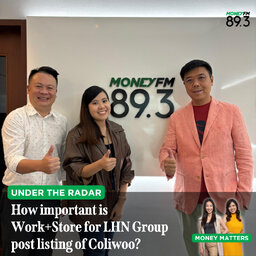Under the Radar: How rewarding is it for Unilever International to build inroads to serve remote and secondary markets?
Ice-cream, sauces, seasoning powders, dish soaps, shampoos, deodorants, laundry detergent and hand sanitisers.
There is one common factor linking all these products together – and that’s they are all fast moving consumer goods or FMCGs. In fact our guest for today is part of one of the world’s leading FMCG firms Unilever.
That is the company behind brands such as Lipton, Knorr, Dove, Hellmann’s as well as your Wall’s Ice-Cream, Lifebuoy hand soap and Comfort fabric softener.
More specifically, we are speaking to Unilever International. Founded in 2012, Unilever International is the white space partner for Unilever, and was set up to serve emerging and fast growing geographies, consumers, customers and channels created worldwide as a result of mega trends such as globalisation, migration and digital commerce.
Fast forward to today, Unilever International operates out of eight key hubs in major cities such as London, Rotterdam, Singapore, Dubai, Mumbai and Seoul.
It also provided over 100 million consumers in remote markets like Yemen, Mongolia and East Timor access to Unilever products, such as Wall’s ice cream and Vaseline lip balm. But how rewarding is it for the firm to build supply chains outside of major cities where the dollars and cents are concerned?
Meanwhile, Unilever International had last year expanded its network of partnerships to the travel sector, serving over 50 Fortune 500 companies like IHG Hotels, Marriott, Delta Airlines, Singapore Airlines with items such as Dove amenities in room or in-flight, reaching over 200 million consumers per annum. But how far will that translate into earnings for Unilever as a whole?
On Under the Radar, The Evening Runway’s finance presenter Chua Tian Tian posed these questions to Aseem Puri, Global CEO of Unilever International.
In 3 playlist(s)
Under The Radar
We speak with businesses, industry leaders, venture capitalists and startups on their assessment of …Social links
Follow podcast
Recent clips

Under the Radar: What is next for semiconductor optics firm MetaOptics post-SGX listing and how does it assess the effectiveness of listing on the local bourse? Its CEO explains.
45:41

Under the Radar: (SPECIALS) All about the fishballs – what should we know about DoDo’s parent Thong Siek Global and its internationalisation moves? We head down to its factory floor to find out.
26:21

Under the Radar: How important is Work+Store for LHN Group post listing of Coliwoo?
24:45
 Under The Radar
Under The Radar

